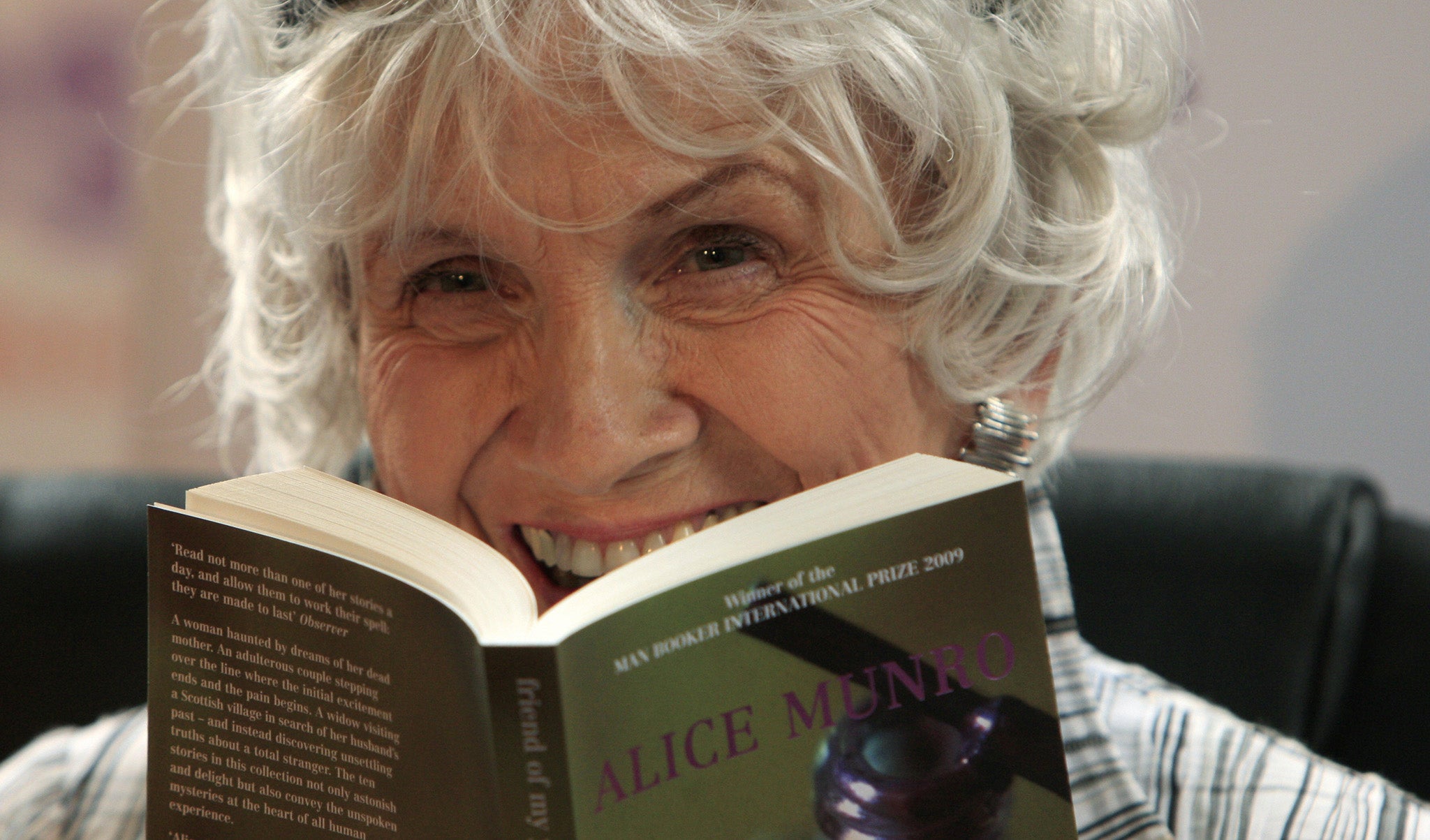Paperback book reviews: The Lives of Girls and Women by Alice Munro, How to Build a Girl by Caitlin Moran
Gut by Giulia Enders, How to be a Husband by Tim Dowling, The Mongol Empire by John Man

The Lives of Girls and Women by Alice Munro, Vintage - £8.99
It’s often said of the great Alice Munro that her short stories are so rich, so commodious, that they read more like novels. If that’s true, The Lives of Girls and Women, which the blurb on this new edition trumpets as Munro’s “only novel”, reads more like a collection of short stories.
First published in 1972, the book is narrated by Del Jordan, a young woman growing up in rural Canada. We learn of Del’s troubles at school, her first, fumbling sexual experiences, her gradual awareness of the world beyond the town of Jubilee, with its single cinema, its streets full of potholes.
But each chapter tends to gather around a particular theme or minor character, telling a little, self-enclosed tale of its own: there’s Benny, a labourer on the land owned by Del’s family, who once “abandoned everything” to pursue a fortune selling turtle soup; Miss Farris, a teacher who stages operettas at high-school before drowning herself in the Wawanash River; Uncle Craig, who works on a voluminous history of the county, complete with lists of funeral attendees and “an account of a runaway horse”.
In the end, Del decides she wants to be a writer, too – although of a rather different kind. And that’s what ultimately lends this book its coherence; we read it as the story of how Del learns to fix compassionate attention on those around her, so that she may summon them on the page later on. After resisting the town’s stifling conventions she comes to realise that “people’s lives, in Jubilee as elsewhere, were dull, simple, amazing, and unfathomable – deep caves paved with kitchen linoleum”.
And therein lies the secret of Munro’s own fictional project. She possesses the ability to find the profound and the universal in the commonplace detail, to notice both the linoleum and the cave.
How to Build a Girl by Caitlin Moran, Ebury Press - £7.99
How to Build a Girl tells the story of Johanna Morrigan, a teenager in Wolverhampton whose big-hearted family are at risk of losing their benefits. Reinventing herself as Dolly Wilde – top-hatted, kohl-eyed, wielder of forthright opinions on contemporary rock – she leaves school and sets off for London to seek her fortune as a music critic.
Moran’s semi-autobiographical novel simmers with anger in its descriptions of her beloved, Thatcher-ravaged hometown, and Johanna’s mingled feelings of working-class pride and longing for escape are nicely evoked.
But it’s as a comic writer that Moran excels. There are several rambunctious set-pieces set amid the London indie scene of the early 1990s, at a time when “sexy, clever, angry freaks” such as Suede and Manic Street Preachers ruled. There are also some funny descriptions of Johanna’s masturbatory sexual awakening, which begins with the family hairbrush. If nothing else, this novel confirms Moran’s status as the Wordsworth of wanking.
Gut by Giulia Enders, Scribe - £14.99
In Gut, the German scientist Giulia Enders offers a tour of what she calls “our body’s most under-rated organ”. A primer on poo, you might call it. Enders offers nuggets of wisdom on everything from the ideal position in which to evacuate your bowels to the science of faeces identification. Enders’s straightforward, mildly jokey tone is endearing, although I found Mary Roach’s recent Gulp: Adventures in the Alimentary Canal a more engaging take on the same subject.
Still, there are some fascinating insights here, including a discussion of how the gut has its own neural network – new research suggests a link between an unhealthy gut and psychological maladies such as anxiety and depression. Food for thought.
How to be a Husband by Tim Dowling, Fourth Estate - £8.99
Tim Dowling’s book, which expands on his weekly columns for The Guardian, documents his “largely unsuccessful attempts to be recognised as a competent father and husband”. Here he tries to extract wisdom from awkward marital situations, covering such subjects as how to occupy the moral high ground and how to keep the passion alive (learn to do it “with the cat watching”). You do wonder why Dowling documents his humiliations so.
His own rather sweet explanation: to make his wife laugh. The other explanation is that he’s very good at it. It’s a rare thing to be able to write about life as a husband and father in such a way as to elicit nods of recognition among those who are neither of those things; Dowling does it with panache.
The Mongol Empire by John Man, Corgi Books - £9.99
Genghis Khan and his heirs conquered around one sixth of the world’s land area and established an empire that lasted for more than 150 years. John Man’s history shows that, while the Mongol hordes were bloodthirsty, Genghis also instituted an enlightened form of government based on religious toleration.
He also shows how Genghis’s grandson, Kublai, succeeded in unifying China, laying the groundwork for the modern superpower. Man’s account is fast paced, although he provides more information on what the Mongols did than on why they did it. In the end, Genghis’s rise to power, with a group of nomadic warriors and the slenderest of unifying ideologies, remains mysterious – as, perhaps, it must.
Subscribe to Independent Premium to bookmark this article
Want to bookmark your favourite articles and stories to read or reference later? Start your Independent Premium subscription today.

Join our commenting forum
Join thought-provoking conversations, follow other Independent readers and see their replies